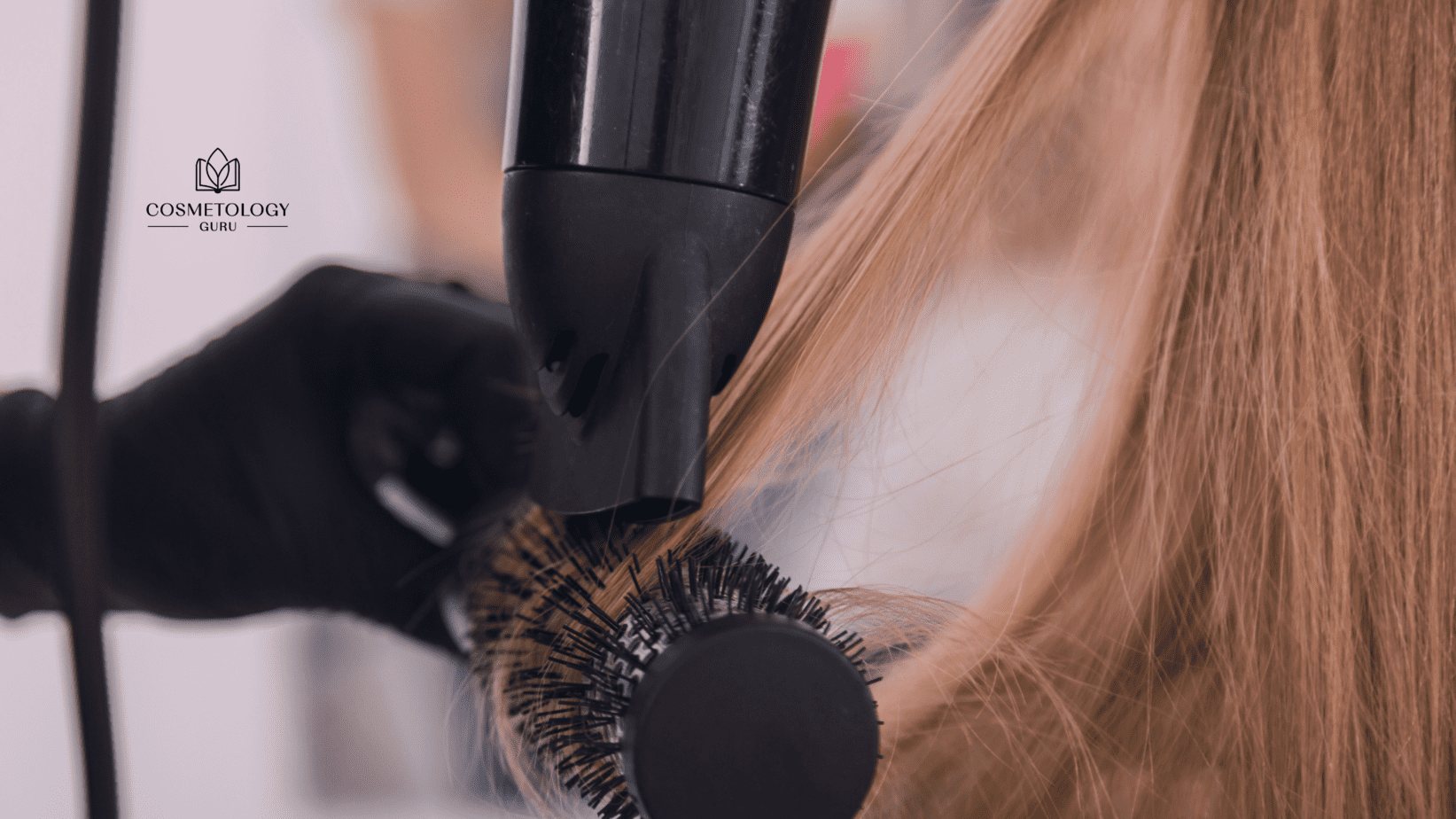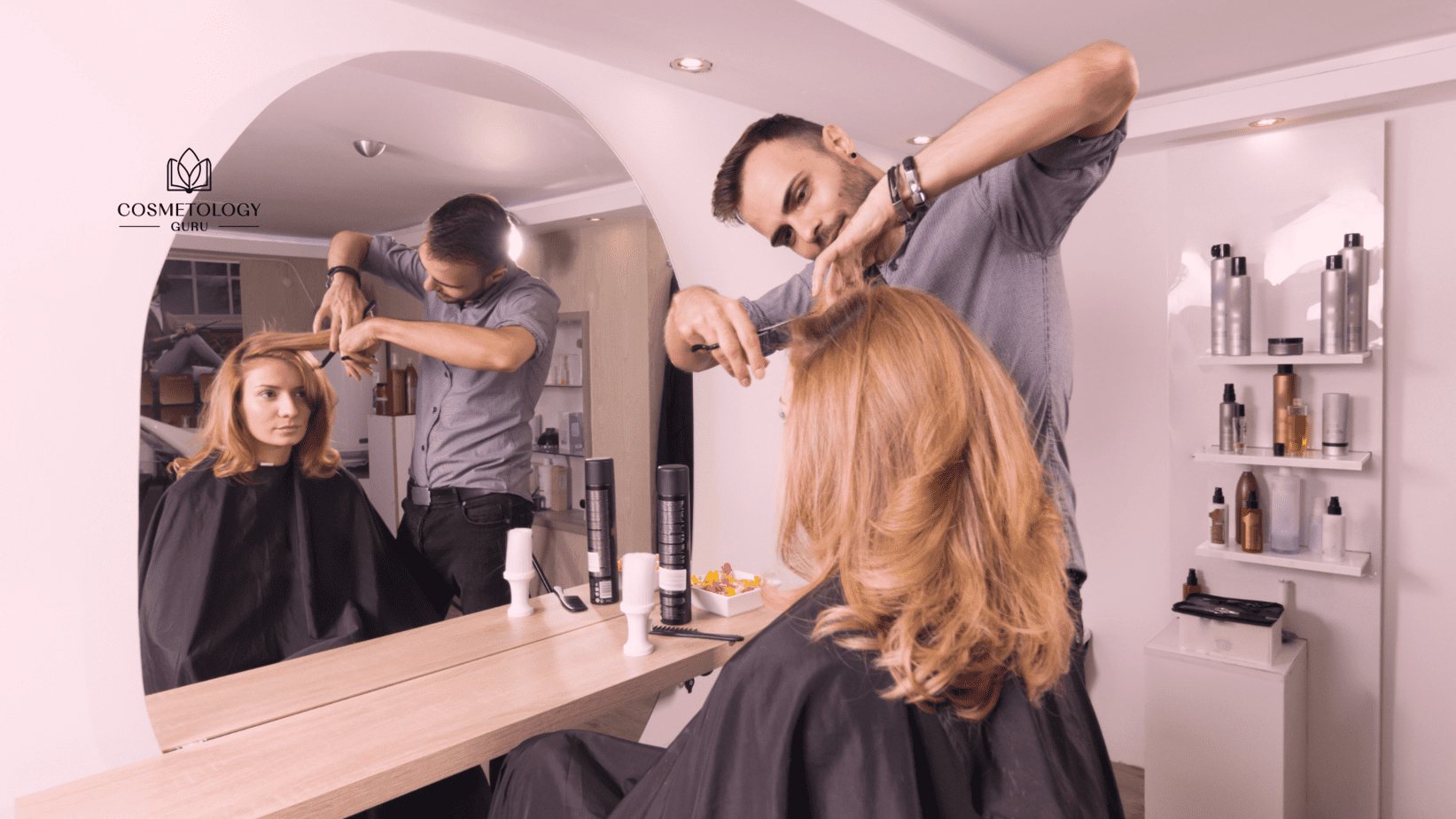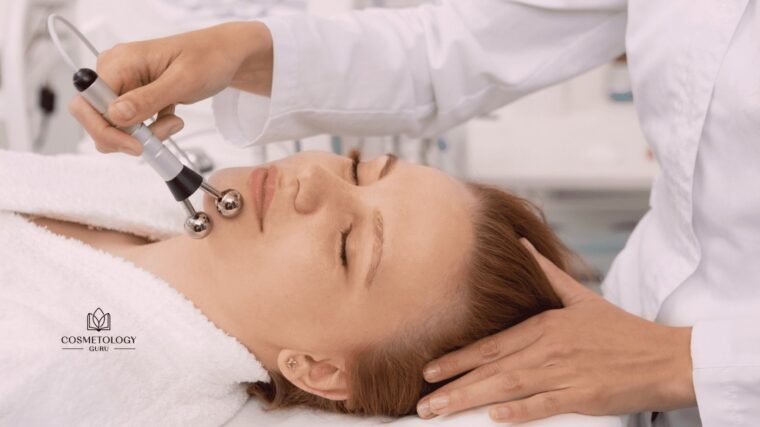Whether you’re fresh into the beauty field or just considering other options, you’re probably wondering what the difference is between booth rental vs commission – or more importantly, which one is better?
If you want to be an entrepreneur, renting a booth is the way to go! But if you don’t want the added responsibility or you don’t have a strong clientele base, you might want to work on commission, at least while starting out.
Whether or not you work on commission or decide to rent a booth is ultimately a personal decision and an important one at that! Let’s take a closer look to see what each one really entails.
What does it mean to be a commission-based stylist?

As a stylist, you have basically two options: be hired by a salon and work for them, or work for yourself by either renting a booth or running your own salon.
When you’re a commission-based stylist, you get hired by a salon in the same way you would any other job: by applying and interviewing with the owner/manager. If you ace the interview and get the job, you’ll be treated as a regular employee.
That means most of the time, you’ll get a schedule, employee benefits, time off, etc. The only difference is how you get paid.
Earning Money on Commission
Commission is basically defined as an amount of money – usually a set percentage of an overall value – that gets paid to someone in a business transaction.
Therefore, if your work is commission based, it means you get paid a set percentage of the overall amount that was charged for a product or service provided.
So, if you’re a commission-based stylist, that means that you get paid a percentage of the overall cost of a service you provide to a customer. That serves as your income in place of an actual hourly wage or monthly salary.
The percentage you get paid is decided prior to you beginning work. Sometimes the rate can depend upon the amount of experience you have. Commission rates can range from 35-60%, however the percentage is usually around 50%, while the other half goes to the salon.
You might be wondering why the salon would take half of your hard-earned money. Well, that’s because, in this structure, you don’t have to cover certain expenses. The salon provides things like:
- Capes, scissors, and towels
- Various hair dyes and bleaches
- Shampoo and conditioner for all different hair types
- Blow dryers, flat irons, and curling irons
You also might get a small commission on any products you sell, which is somewhere in the range of 10-15%. Most salons also allow you to keep tips, which can be up to 20% of the overall cost of the service.
What is base pay?
In some cases, salons will set a base pay as well as a commission rate, and there are three general structure models they might use:
Base rate plus commission
One is where the stylist will get paid a base rate plus commission. The base pay is offered either as a salary or hourly rate, and then stylists can make commissions on top of that, but they tend to offer lower commission rates.
Commission or base pay only
The second common model is commission or base pay only. The salon will set a low base pay rate – usually minimum wage – to ensure that their hairstylist will meet the legally required income minimums, which are set either by the state or city you’re working in.
The salon will also set a commission rate, which is generally higher than base pay plus commission structures. If you make more off of commissions, you’ll get paid that amount. However, if your base pay is more, that’s the amount that you’ll get paid.
Commission-only
There are, of course, commission-only models, which are great for salons with high foot-traffic or more established hairdressers who have a growing clientele base.
No matter which model you choose, if you’re a commission-based stylist, a portion or all of your income will be based on commissions and you’ll be treated as an employee, not a business owner.
The booth-rental model for cosmetologists

If you don’t want to work on commission, many salons also offer booth rentals. Most of the time, stylists move on from commission work to renting a booth after they’ve gained more experience and a steady clientele base.
It’s important to note that this structure is almost entirely different than working on commission, and that’s because you won’t be working as an employee anymore.
Basically, once you find a salon you want to rent a chair in and they agree to it, you enter into a type of tenant/landlord relationship with them – not an employee/boss relationship. You are running your own cosmetology business.
Salon Booth Rental Process
First you’ll want to find a salon that’s looking to rent a booth that you’d like to work with. Each salon will have their own unique set of rules to be wary of.
Will they give you a key to the salon, or are you only allowed to be there during the specified business hours? What supplies do they allow you to use? These are some important questions to ask yourself before entering into any formal agreement.
It’s very important to make sure you thoroughly understand the salon’s allowances and expectations so you aren’t caught off-guard later on.
After you’ve found a salon that fits your needs, then you can enter into a contract with them. Make sure you have a basic idea of your own state and city’s laws, and always get a written contract!
What does a salon contract include?
As a legally-binding agreement between you and the salon you choose to work in, you should make sure it clearly includes the following information:
- Start and end dates
- Price agreement
- Responsibilities of the tenant
- Responsibilities of the landlord
- Policy regarding the cancellation/early termination of the contract
Most contract lengths are either month-to-month or are in 6-month or 1-year increments. You should be aware of the salon’s lease-renewal policy as it might differ from salon to salon.
Also make sure that the agreed upon rental rate is fixed for the length of the contract. The average cost of renting a booth is $150-$200 per week, unless you’re in an upscale area or a big city. If you think that’s too much, you can always try and negotiate before it gets put in writing!
The contract should also lay out what the tenant is responsible for, and what the landlord will allow the stylist to use. Usually, the tenant is granted the use of one station, electricity, water, large salon equipment, and (most of the time) the reception area.
The contract should also specify that the landlord is responsible for the taxes on the salon building itself. They should also be responsible for the upkeep of the building and fixing any major issues that may occur.
What are you in charge of?
You, as the stylist and tenant, are acting as an entrepreneur. This means that you set your own pay rates, get paid directly by your clients, and pay your own income and property taxes.
You also are responsible for your own schedule and maintaining your own books. You’re also not an employee, so you’re responsible for your own benefits, like health insurance and time off.
Additionally, you’re responsible for having your own insurance. In almost every case, the salon will require you to carry liability insurance. Sometimes they might even specify minimum limits, but this would all be outlined in your contract.
At the end of the day, renting a booth in a salon is extremely similar to renting a house or an apartment. You’re a business owner, but instead of owning your own salon, you’re just renting a space in someone else’s.
Pros and cons of renting a booth in a salon
As with everything, there are good and bad aspects that you need to consider. Let’s look at a general overview of the best and worst parts of renting a booth.
The pros:
- You’re your own boss
- You have control over the products you use/sell
- You create your own atmosphere
- The salon provides the big equipment
The cons:
- You need your own clients
- You provide the majority of your supplies
- You have to pay your own taxes
- You have to keep all your records
Let’s break down each of these aspects to really get a deeper look!
Pros
The biggest upside to renting a chair is that you are your own boss. I mean, who doesn’t want to have a flexible schedule and set their own prices? Not to mention that you don’t have to answer to someone – you’re in charge!
You also get complete control over the products you choose to use and sell. This means you get to choose your favorites – the ones you’re especially good at working with and the ones you truly stand behind.
On top of that, you get to create your own atmosphere at your station. So whether your style is ultra-modern or rustic-chic, your work space can communicate that! Plus, who doesn’t love having a little fun decorating?
And last but not least, the salon provides the big, real expensive equipment. You know, those $600 salon sinks and $1,000 styling stations? In some cases, you can even use the salon’s payment set up instead of buying your own!
Cons
When there’s so much good, there’s bound to be some bad! One of those “bads” is that you’ll really need your own clientele base. Most salons that do booth rentals aren’t frequented by walk-ins, so you’ll need a loyal customer base to keep your income steady!
Even though the salon provides the expensive, big equipment, you’re responsible for the smaller supplies. You’ll need to buy hair dyes, capes, caps, bleaches, towels, scissors, blow dryers, brushes, and pretty much anything else you can think of!
While all these things might be cheap on their own, it adds up! Not to mention, it can be hard to remember what items you need, and you might find yourself making multiple trips to the store when you first start out.
This might be slightly easier for you, however, if you’ve done beauty school instead of an apprenticeship, because some schools require you to buy your own supplies, so you might have a good baseline already.
And while being your own boss might be freeing, you’ll be weighed down by the responsibility of taking care of your own taxes, running your own books, keeping your records, and being overall hyper-organized just to keep things running smoothly.
Pros and cons of working on commission
Working on commission has its own unique set of ups and downs, too!
The pros:
- You don’t have any entrepreneurial responsibilities
- You get employee benefits
- You don’t need a large clientele base
- You can earn commission from selling salon products
The cons:
- You can’t set your own prices
- You can’t pick your own hours
- You have to use the salon’s supplies
- The salon dictates the atmosphere
Let’s look at these more deeply as well to see what we’re really dealing with!
Pros
While being a business owner might sound exciting for some, it’s not for everyone. Some people just don’t want all the added responsibility that comes with it – and that’s totally fine!
Working on commission means you’re an employee. You don’t have to deal with the heavy-weighted duties of running your own business. You can stick to what you love doing – cutting, coloring, and styling hair!
As an employee, you also get benefits! Health insurance and paid vacation time aren’t things to take lightly.
Not to mention that you get walk-ins. So, if you don’t have a huge following of loyal clients, you can still earn a decent living. It’s also a great starting point to begin building up your clientele base for the future!
And don’t think you’re deprived of any sources of income either – you still get tips and even commission from the products you sell, just like someone who’s renting a booth!
Cons
Even though being a business owner can strap you down with responsibilities, it also allows you certain freedoms that you won’t have as a commission-based stylist.
For one thing, you won’t get to make your own schedule. Your hours and days off will be at the mercy of your employer.
Your boss will also be the one determining how much you charge for what services. The haircuts might be worth $50 or more, but if they decide to charge $15, then you’re getting short-changed. And unfortunately, you don’t really have a say in the matter.
The same goes for the atmosphere of the salon. Marketing yourself as a modern, upscale stylist (like you’d prefer to be known as) will be hard if the salon gives off a completely different vibe.
And you might prefer cruelty-free hair care products but the salon might care less. Using products that you don’t enjoy can be a pain, and selling products that you don’t genuinely stand behind is close to impossible.
So, at the end of the day, your decision should mostly be based around what’s more important to you: more freedom and more responsibility; or less responsibility, but less freedom.
How many clients do I need to rent a salon booth?
If you’re renting a booth, you must know how many clients you should have to be set up for success. The reality of the situation is that it totally depends. You don’t technically need any clients, as in there’s no legally determined standard.
Not having clients might hinder or help your chances of getting hired! It all depends on the salon.
For example, if you have no clients, you’ll need to consider the amount of foot traffic the salon you’re looking at gets – and if they’ll give those clients to you before you’ve proven yourself worthy or not.
If the salon doesn’t get many walk-ins, they probably won’t hire you. Not because they’re mean or greedy, but because it would be a recipe for most likely end in failure.
On the other hand, having too many clients might be seen as a negative! That’s because some salon owners only rent out a booth when their current stylists are fully booked or even overbooked.
They’ll need someone who can take walk-ins as well as any extra clients from other stylists, and someone who already has a strong customer base wouldn’t be the right fit in that situation.
So really, how many clients you need (or don’t need) just depends on the salon’s position.
Booth rental right out of school with no clients?
A common question new cosmetologists – or people in the process of becoming a cosmetologist- ask is whether or not they should rent a booth right out of cosmetology school. And the answer is probably not.
Even though some salons would prefer you to have no clients when you go to rent a booth, they still need to be sure they’re hiring someone with a good work ethic and even better skills.
You might have the best work ethic out there and have mastered the most difficult techniques, but if you don’t have the experience to back it up, you’ll still have a tough time getting hired.
Not to mention, you’ll have a hefty bill to pick up with regard to gathering supplies if you decide to rent a booth. That can be a risky (or not even feasible) move if you don’t have a steady stream of income coming in already.
Working on commission is a great way to start out building up your client base while earning a decent living. It’s a much safer option, however it’s not impossible to rent a booth right out of school and still succeed – you just have to be willing to work a little harder at getting customers.
Almost done with beauty school? Take our free cosmetology practice test to see if you’re ready to pass the exam!
How to get more clients while renting a booth
If you’re renting a booth, especially right out of beauty school where you have little to no customer base, you’ll need to start building up your clientele ASAP!
The main way to do this is by marketing yourself – a lot! Setting up social media pages to your cosmetology business is an especially important key to success in today’s digital age.
You’ll also need to appear as professional as possible, so you’re going to want business cards that you can hand out to walk-ins as well as anyone you can strike up a conversation with to try and get more business.
Working hard to market yourself, especially when you’re just starting out, can make or break your chances of succeeding. So, be prepared to hit the ground running if this is the path you choose to take!
Related Reads
10 Of The Best All-Black Salon Outfits


